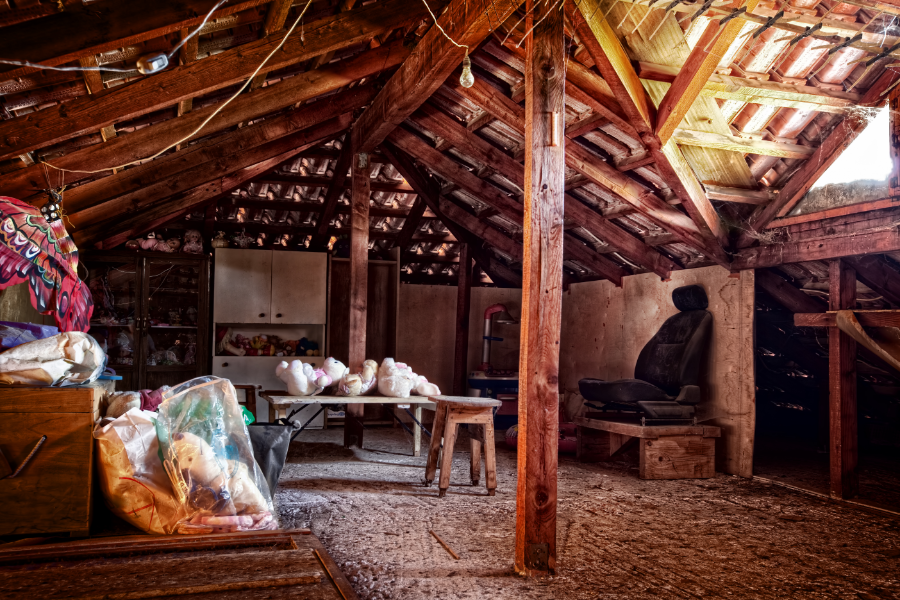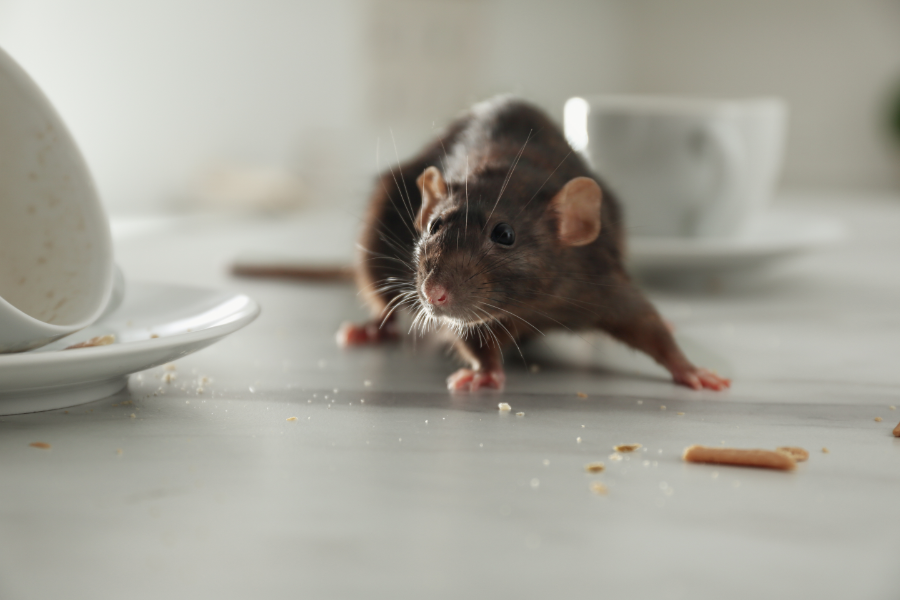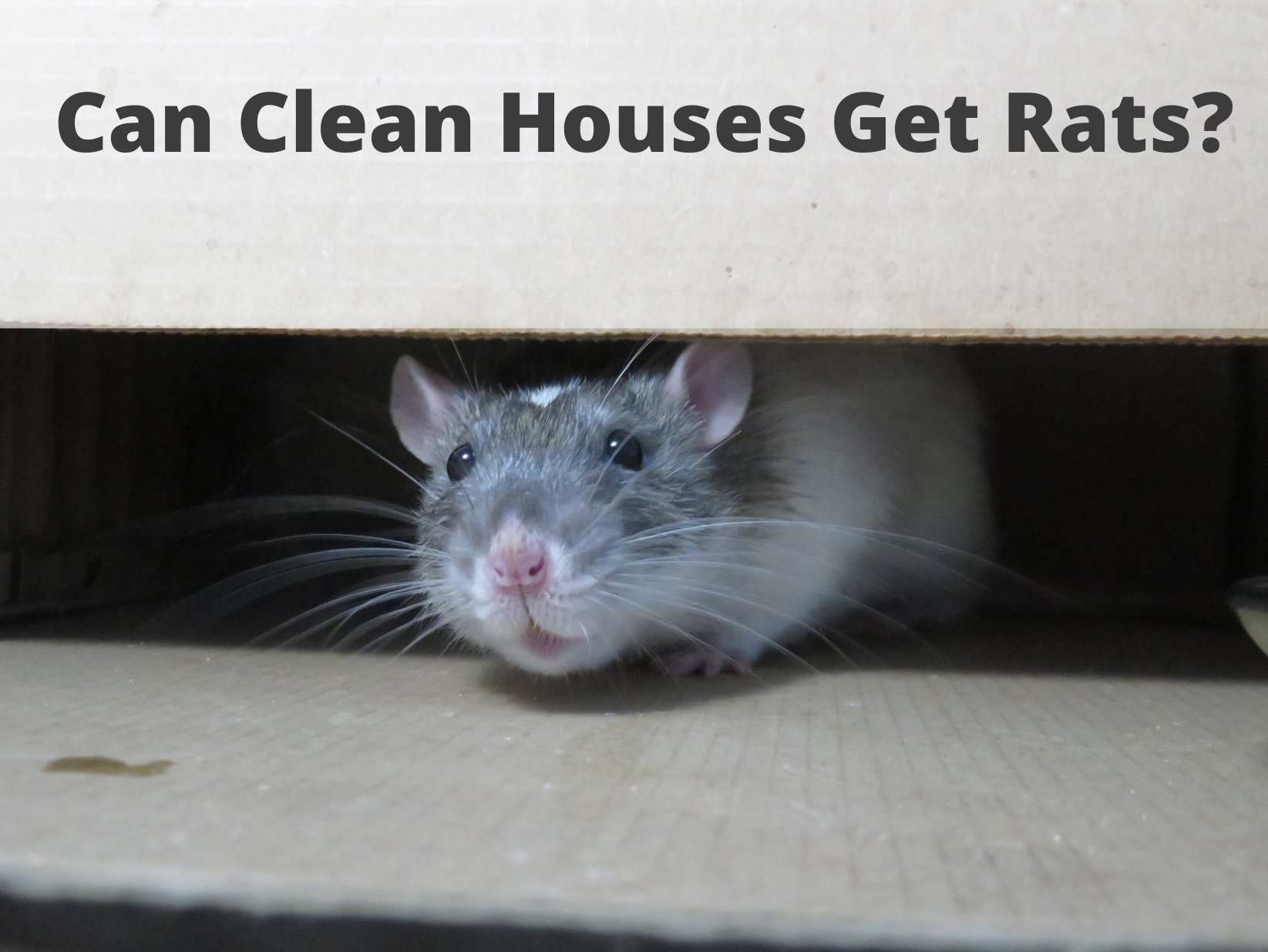In a previous post, I wrote about my experience with a mouse in my house. While writing that post, I started thinking about another rodent close in appearance to the mouse – the rat. So I wondered, Can Clean Houses Get Rats?
Yes, clean houses can get rats. And just like mice, rats are looking to see if your home can provide them with what they need, especially in the winter, regardless of how clean your house is.
A clean house can help make it harder for them to get what they need, but if they can find food, water, or shelter, they will try to make your house their home.
Now that you understand that clean houses can get rats, you may be wondering why clean houses get rats. And what attracts them?
Why Do I Have Rats When My House Is Clean?
In general, like mice and other rodents, rats are looking to survive and produce offspring, and since they are warm-blooded, cold weather in the winter makes this hard to do. So, what do rats need?
What Attracts Rats To Your House?
To survive, rats need food and shelter. They will also eventually need water (they can go a month or more without actually drinking water because rats get water from the food they eat).
Even if your home is clean, if they can get food, water, and shelter, rats will make themselves at home.
Do Rats Eat Pet Food?
If you aren’t leaving any food out and cleaning up every crumb after eating but are leaving pet food out for your pets, rats will eat it.
Being a scavenger, rats will eat anything edible they can get, and they will definitely eat pet food or anything else you feed your pet.
Nesting Material for Rats
Rats make nests for themselves and their offspring. If you have a clean home but have the necessary nesting materials like paper, cardboard, wood, or insulation stored away in your attic or basement, they can find them and start using them to build themselves a nest.
Do Rats like Clean Houses?
Rats don’t care if the home is clean as long as they can eat and stay warm in it. As was mentioned earlier, mice need food and shelter to survive. However, a clean home can make it harder for rats to find food and build a nest.
How Can Rats Get in Your House?
Rats can enter your house anywhere there is a hole, crack, or gap in the foundation, roof, or outside of the house. They can also enter through the chimney or vents in your home. Let’s look at the areas they can hide.
Where Do Rats Hide in a House?
Once rats enter your house, they will look for dark places to reside, like inside the wall or a cabinet, and even damp places like the basement.
Can Clean Houses Get Rats Under the House?
Most likely, when you see rats in a movie or on TV, they are shown in a sewer or wet underground area. That’s because they like dark, damp places. In most houses, that would be their basements or crawl spaces.
Can Clean Houses Get Rats Under the Roof?

Yes, clean houses can get rats under the roof. If you have a leak or hole in your roof that is dripping rainwater through it into your attic, it will become a dark, damp area, like your basement.
The most common rats found in the attic or under the roof are (aptly named) roof rats. Usually, you find them in warm areas with palm trees, where they will also dwell.
Can Clean Houses Get Rats Under the Carpet?
Rats can chew through lots of things, including carpets. It is unlikely that rats would go under the carpet to build a nest, especially if the room gets consistent foot traffic. Rats don’t want to be around people.
A room in the basement with minimal foot traffic may get rats going under the carpet to get to cracks, gaps, or holes that may lead to other areas including under the house.
Can Clean Houses Get Rats under the Deck?
Yes, clean houses can get rats under the deck. You could attract rats if you eat or grill food on your deck.
Although the deck is outside the house, they can use the area under the deck to find a place like a hole or crack to enter the house.
How Many Homes Have Rats?
Seeing a mouse or rat can be a scary surprise. Unfortunately, roughly 14.8 million of the approximately 124 million used housing reported seeing rodents (mice or rats) in the past 12 months. Another report claims they infest around 21 million U.S. homes each winter.
What Problems Can Rats Cause in Your House?
Rats can wreak havoc in your house and be dangerous to you and your family’s health.
Can Rats Chew Through…?
Like the mouse, rats’ incisor teeth constantly grow, so they need to chew on things to grind them down.
Each year, numerous house fires are started by rats chewing on electrical wires. Rats can chew through several things in your house. Here are some below.
- Walls
- Wood structures (door frames, beams, window frames, beams, etc.)
- Plastic
- Cardboard and paper
- Aluminum
- Brick
- Wires
- Pipes
Do Rats Breed Fast?
Rats breed fast! A female rat typically births six litters a year, consisting of 5 to 10 pups.
And two sexually mature rats can exponentially produce up to around 1,250 in one year! This means your house can become infested with rats quickly.
Do Rats Carry Diseases?
Rodents (rats and mice) can carry over 35 diseases. You and your family can contract these diseases in direct and indirect ways.
Do Rats Carry Hantavirus?
Hantavirus (full name: Hantavirus Pulmonary Syndrome) can be transmitted through rats and mice. Specifically from breathing in the dust contaminated with the rodents’ urine and droppings or direct contact with it.
Do Rats Carry the Plague?
Yes, wood rats and other types of rodents carry the plague. The plague can be spread from an infected rodent to a human by direct contact or bite of an infected flea.
Do Rats Carry Leptospirosis?
Yes, rodents, including rats, carry leptospirosis. It is spread through consuming food and water contaminated with urine from infected rodents.
Even water or soil contaminated with it that comes into contact with skin or mucous membranes can infect humans.
Do Rats Carry Salmonellosis?
Yes, they do, but only in parts of South America. Infections in humans usually happen through breathing in the dust contaminated with the rodents’ urine and droppings or direct contact with it.
Do Rats Carry Rabies?
No, rats do not carry rabies.
For a list of the diseases, rodents transmit, directly and indirectly, click here.
To learn more about the dangers of rats in your home, read our post – Are House Rats Dangerous?
How to Get Rid of Rats in Your Home?

If rats have infested your clean home, there’s no time to wait for them to leave. You have to take action and get them out as soon as possible. Get started with the steps below.
- Since rats can squeeze through very small areas, begin sealing any holes, cracks, or gaps around your home.
- Store food including pet food away in durable, sealable containers to prevent rats from getting it.
- Really clean your house (especially the kitchen and areas you eat in) well and store or remove nesting material like cardboard and paper. Leave no traces of food.
- Remove trash and full trash bags out of the house nightly, and wherever you place them, make sure to put a lid on them.
- Set traps.
- Too much of an infestation for you to handle? Call your local pest control service.
Since rats constantly look for food to survive, a common question is: if you remove all traces of food, will rats have to leave?
Will Rats Leave If There Is No Food?
Overall: yes, rats will leave if there is no food. But rats have an unbelievable ability to smell and will keep searching for food in areas like a kitchen after moving the food out.
To survive, they may eat anything, including other dead rats and animals. But eventually, once they run out of sources of food and water, they will have to leave.
To learn more about rats and the food in your home, read our post – Will Rats Leave If There Is No Food?
How to Keep Rats Away from Your House?
Once the rats have left your home, you keep following the steps you used to get rid of them. Make an effort to check around your house monthly for any new holes or cracks, and make sure the ones you sealed haven’t opened back up.
Always clean up any leftover food crumbs and pet food in and around your house.
Conclusion
As we’ve discussed throughout this post, clean houses can get rats. It doesn’t matter how clean your house is: if your home allows rats access to food, water, and shelter, you will get rats.
Rats can enter your home through cracks and holes in the exterior, anywhere from the foundation to the roof. Rodents like rats can cause house damage and carry over 35 diseases.
There are various ways to get rats out of your clean house, but mainly you have to cut off their access to food. Without access to food, they will eventually have to leave.
Are you curious about other rodents, like mice, entering your clean home? Check out our post – Can Clean Houses Get Mice?

